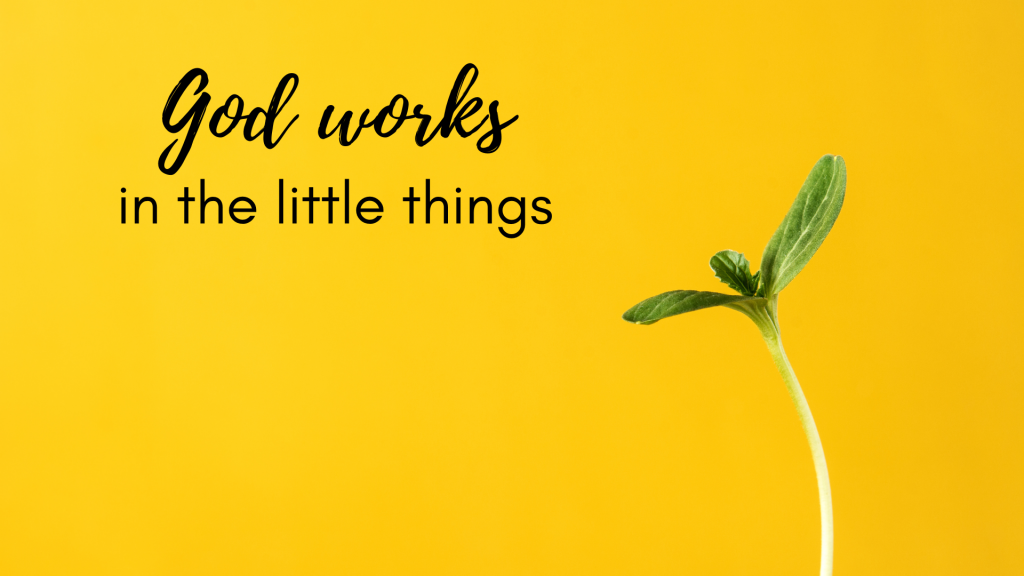Little things

A number of study groups have asked elementary-school kids about where their food comes from. Some made easy mistakes: they thought tomatoes grew underground and potatoes grew on trees. Others couldn’t imagine their food’s life before the grocery store: One dad pulled a long, dirty, pointy carrot out of the ground and showed his son, who said “What is that? That’s a carrot? I thought carrots were those little orange things that come in plastic bags.” When these kids guess where their food comes from, their answers would probably send all you gardeners out there into shock: Pasta is made out of meat. Fish fingers come from chickens. Cheese is made from plants.
I want you to pretend for a minute that you are one of those kids who thinks dairy cheese is made from plants. If I handed you a tiny yellow ball about the size of the tip of a pen, what would you think it was? My guess is that you’d think it was nothing, really. A little speck of whatever-it-is that always ends up on the floor and then gets swept up into the dust pan. A piece of sand, or something that fell out of a beanbag. You’d probably think that I was just being silly telling you to hold on to something like that, drop it on the ground, and go back to using your hands for important things, like checking email.
Jesus said the Kingdom of God is like that tiny little yellow ball. It’s like something so small we’d think nothing of it; nothing can come of it. It’s like there’s nothing there. But then, we’d be wrong. That tiny yellow ball needs only the earth and rain to turn into a huge shrub with branches big enough for bird nests. The Kingdom of God is like that: something so insignificant it doesn’t seem worthy of our attention, but it holds so much, hidden away from sight. It grows beyond our expectations into something so meaningful.
This is one of the overarching themes of the Bible. When God chooses the couple that will be parents to God’s chosen peoples, as numerous as the stars, God chooses Abram – a man so old, he could call the oldest members of any congregation “young whipper-snappers,” and Sarai – a woman who could probably barely remember menopause. When God chooses a nation through whom God will work out the plan for the world, it is not a powerful empire, but Israel: a people who had spent generations and generations as slaves. And on and on the pattern goes.
Jesus said, “The Kingdom of God is like a mustard seed…” something so small, we’d think there’s nothing to it. But then, we’d be wrong.
Can we look at the world through the eyes of God? Through the eyes of the God who always sees greatness in the most insignificant things: a nation of slaves, a baby born in a barn to an unwed mother. Can we say along with the apostle Paul, “We walk by faith, not by sight” (2 Cor. 5:7)?
Jesus said, “The Kingdom of God is like a mustard seed that someone took and sowed in his field; it is the smallest of all the seeds, but when it has grown it is the greatest of shrubs and becomes a tree, so that the birds of the air come and make nests in its branches” (Matt. 13:31-32).
When we walk by faith, not by sight, we are those birds. We see that the tiny mustard seed has become a shrub with sturdy branches, and we build our homes there. We see that the Kingdom of God grew from Jesus of Nazareth – yes, the one who was crucified – and we build our lives on that.
It’s a crazy thing to believe, from a mortal perspective. But “the Lord does not see as mortals see.” So from a faith perspective, from a biblical perspective, maybe it’s not so crazy to believe that the Holy Spirit moves through our world, sees the greatness in things we’d call insignificant, and then builds the kingdom there.
Sometimes, God works in big things: in healings and resurrections and other miracles. But God always works in little things. The littlest things we do in the name of God are like mustard seeds that God grows into a kingdom.
Pastor Kate
Feb. 15, 2023
Pastor Kate and Pastor Jim take turns writing weekly devotions for the Chapel of the Resurrection. Contact them here: